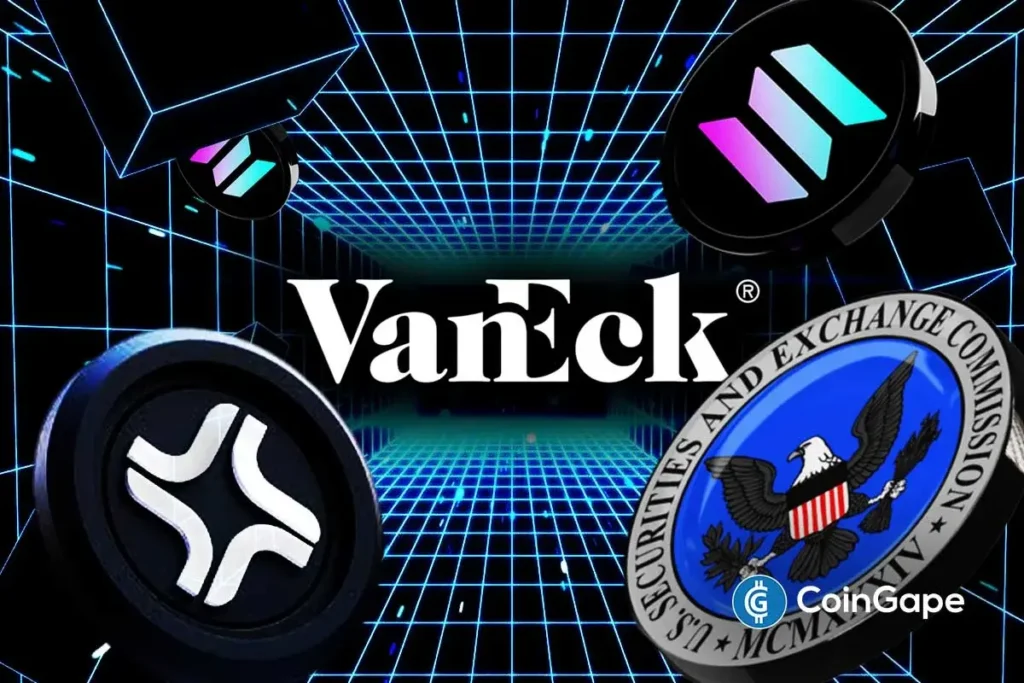VanEck Files for JitoSOL ETF: A Potential Breakthrough in Liquid Staking Tokens
In a significant development for the cryptocurrency and investment sector, asset manager VanEck has submitted a filing to the U.S. Securities and Exchange Commission (SEC) for the JitoSOL ETF, aiming to change how institutional investors gain exposure to liquid staking tokens (LSTs). This move could potentially pave the way for a new era in cryptocurrency investment, particularly focused on staking assets.
What is the JitoSOL ETF?
The JitoSOL ETF represents a radical shift in the current investment landscape. Designed primarily to hold liquid staking tokens, it will allow institutional investors to gain spot exposure to such digital assets. The SEC filing reveals that this fund will primarily invest in JitoSOL, which is the native token of the liquid staking protocol Jito. By holding JitoSOL, the ETF will exploit opportunities within the decentralized finance (DeFi) ecosystem and potentially enhance returns for investors.
SEC’s Stance on Liquid Staking Tokens
VanEck’s filing follows the SEC’s recent guidance clarifying that liquid staking activities do not fall under the category of securities. This is a crucial development, as it opens the door for the potential approval of the JitoSOL ETF. The classification of LSTs as non-securities allows VanEck to navigate regulatory complexities that have hindered similar initiatives in the past. The firm has been at the forefront of discussions urging the SEC to approve LSTs for Solana-based ETFs, making this filing a logical extension of its advocacy.
The Mechanics of JitoSOL
To launch the JitoSOL ETF, VanEck will need to acquire Solana tokens to stake within the Jito protocol. In return, the asset manager will receive JitoSOL tokens and staking rewards. This mechanism of staking not only serves as a source of income for the fund but also allows for the utilization of tokens in various DeFi activities. Stakeholders can benefit from the dual approach of generating returns through staking while having liquidity through the ETF structure.
Next Steps in the Approval Process
Following the submission of the S-1 registration statement, the next step involves a stock exchange filing the 19b-4 form to list and trade JitoSOL ETF shares. This critical step will initiate the SEC’s review process. The Commission must ultimately decide to deny or approve the proposed rule change, which will determine whether institutional investors can gain access to this innovative financial instrument.
Market Reaction and Current Statistics
The recent filing has already had a positive impact on the market, as evidenced by TradingView data showing an increase in JitoSOL’s price. Currently trading at around $236, the token has risen over 6% in the last 24 hours, indicating strong market interest and investor optimism surrounding the introduction of the ETF.
Conclusion
VanEck’s initiative to create the JitoSOL ETF signifies a forward-thinking approach to liquid staking tokens and institutional investment in cryptocurrencies. By aligning with the SEC’s guidelines and focusing on staking rewards, this move not only exemplifies financial innovation but also enhances the market for LSTs within the cryptocurrency ecosystem. As the regulatory landscape continues to evolve, this ETF could set a precedent for future products that integrate DeFi and traditional investment strategies. The upcoming approval process will be watched closely by investors and stakeholders alike, with the potential to revolutionize how liquid staking is perceived in the larger financial market.


